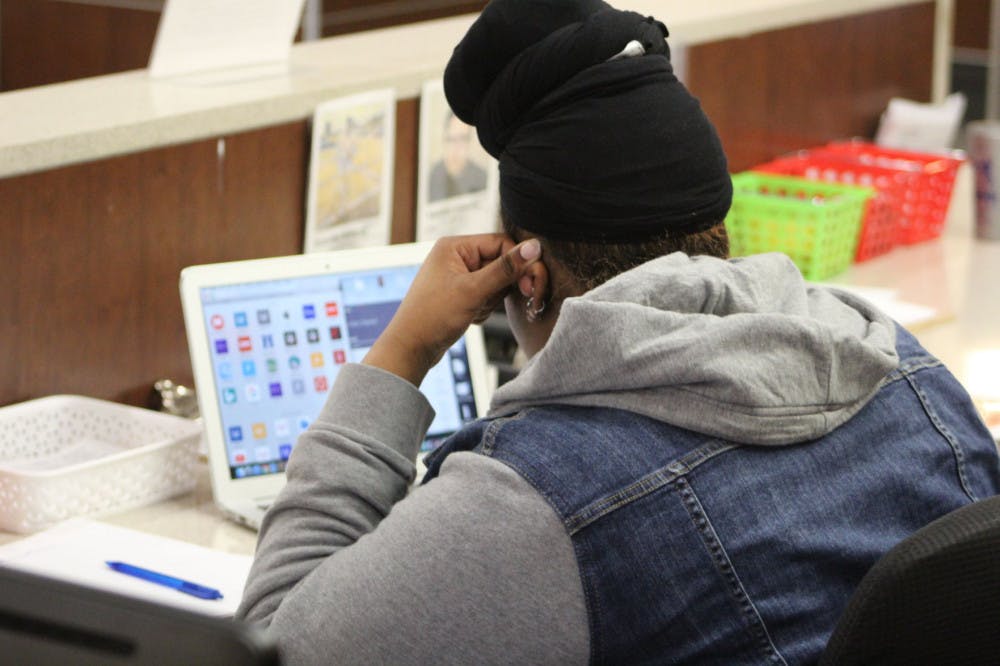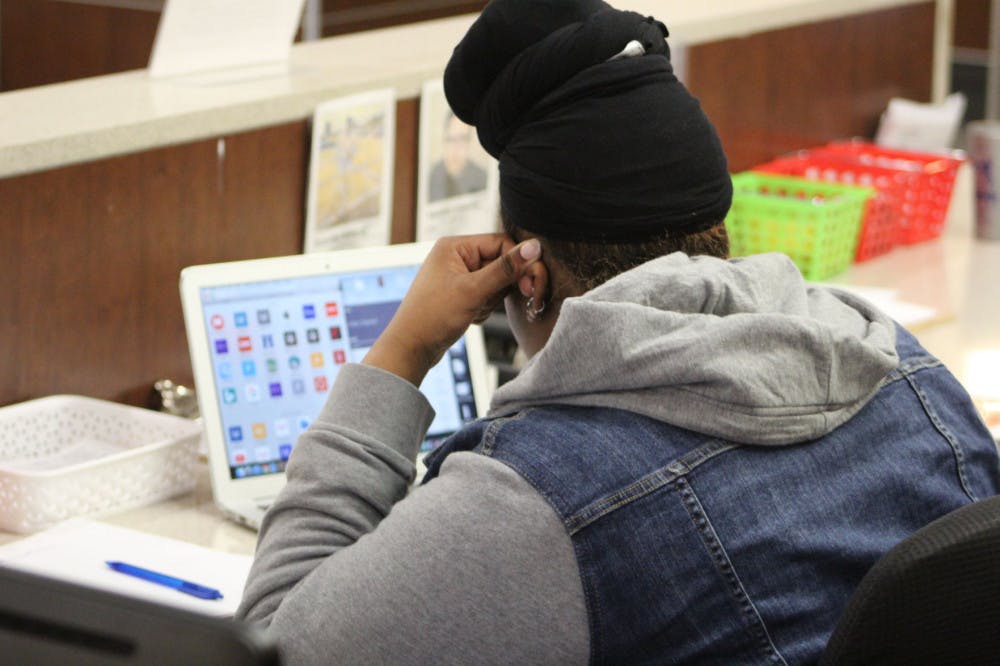
Elizabeth Ealy browses the Internet. Memphis residents have the slowest Internet connection speed in the nation.
YouTube buffering, slow downloads and poor Internet connections before an assignment deadline have affected many Memphis students at some point, but the connection may have less to do with your phone data plan and more to do with where you live.
After obtaining data from internet speed testing providers, database company Statista discovered Memphis has the slowest internet speed out of any city in the country.
Daniel Kohn, a University of Memphis associate professor of engineering technology said monopolies on the Internet service business have incentivized poor service by providers. Â
“They (Internet service providers) are basically a monopoly and really don’t care about providing the best possible service to their costumers, and that includes internet speed,†Kohn said.
Memphis has an Internet speed of just 44.86Mbps in comparison to other cities such as Kansas City, Missouri, who has the fastest speed at 159.18Mbps, followed by Austin, Texas, and Lubbock, Texas, with 143.66Mbps and 141.38Mbps, respectively.Â
Most cities provide a variety of Internet services for their costumers to choose from. AT&T, Comcast and many other providers are all in competition with one another but still lack quality service to those being affected.Â
Kohn said while on-campus service is excellent, students and faculty may have difficulty getting a fast connection on campus.Â
“I think on campus, we have good connections, but that’s because we go directly towards regional ISP (Internet Service Provider), “ Kohn said. “For students off campus, I think it’s a huge problem, and it’s becoming more and more relevant because now our students are using UM apps to connect to services.â€
The UofM information technology center created applications for students to directly access the ISP on campus for better connection, but Kohn said this problem needs to have a solution for the whole community.
“I’m hoping that one of these days we’re chosen as a Google Fiber (a broadband Internet provider) community because I really think it would boost our Internet abilities but also help our economy and improve Memphis,†Kohn said. “Overall, we need high-speed internet in the community to actually break this monopoly.â€
Marketing management major Raven Hill is aware the Internet connection in Memphis is much slower than other places.
“I’m not from here,†Hill said. “I’m from Nashville, so I kind of noticed in general the internet connection down here is much slower.â€
Hill said he also thinks ISPs in the area need to upgrade their poor connection.
“They need to put towers up to help make the connection stronger, especially for a college campus,†Hill said. “We kind of need it the most here.â€
Robert Jackson, the chief information officer for the UofM IT department, said while the off-campus connection isn’t very desirable, connection on campus has improved and enhanced their services.
“The University of Memphis undertook a major network upgrade in 2018 that has significantly enhanced our network performance,†Jackson said. “Over 750 network switches and 2,500 wireless access points were replaced on our campuses, and we are continuing to expand wireless connectivity as needed... UofM network download speeds generally surpass 100Mbps for Wi-Fi and 500Mbps for wired connections.
Students and faculty members can contact IT with concerns about the Internet speed or any technical problems at 901-678-8888.Â
Editor's note: In the past year, Comcast has launched an Internet service that delivers speeds of up to 1 Gigabit-per-second for homes and businesses in Memphis. For 1 Gigabit service, it costs $139.95 a month without a term contract. In the past six months, Comcast has also provided Memphis Public Libraries's intranet with speeds of up to 1 Gbps.






